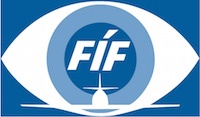Safe and expeditious – the separate but equal aims of the air traffic management system! We naturally accept that expedition should give way to safety and conventional thinking is that air traffic control is a barrier to rather than an enhancer of expedition. As a passenger you would have heard that your flight’s late arrival was because of air traffic control delay but you would never have heard that your early arrival was the result of efficient air traffic control. You would never have heard that the “air traffic control delay” was because of the airport or the airspace reaching maximum capacity. You would never have heard of the untiring effects controllers make all day every day to get you to your destinations as efficiently and as safely possible. As we celebrate the day of the air traffic controller on 20 October, the International Federation of Air Traffic Controllers’ Associations (IFATCA) would like to highlight the crucial role that each air traffic controller plays in maintaining the efficiency of the air traffic management system.
Airline closures, higher cost of travel – the results of business models that did not cater for the current price of fuel – are affecting travellers the worldwide. We are at a point in aviation history when it is vital that we all understand that rather than being the limiting element in the air traffic system, the air traffic controller is in fact an enabler that ensures the system not only functions, but actually goes beyond its natural limits. We are at a point when the high cost of fuel means that airlines won’t survive to boast of their excellent safety record if they cannot devise the ideal business model. But we are also at a point where there is worldwide shortage of controllers. More and more traffic is being safely handled by fewer and fewer controllers; efficiency you will never hear about! We are also moving into the implementation phase of new air traffic management technologies and systems that are supposed to usher in unprecedented efficiencies. Again, here it is being recognised that the air traffic controller will only be a limiting factor if there are not enough of us, for these new systems will only realise their potential if trained controllers are part of system development and evolution.
Though largely unheralded, the air traffic controller has always been a crucial player in achieving and enhancing efficiency. When controllers talk what you hear a lot are about those times when we handled a tremendous amount of traffic and we did it efficiently – no delay! For to be a good air traffic controller is to do what, in hindsight, should not have been possible and to know that it was done well. This instinctive and common understanding among controllers lead to the formation of this international federation on 20 October 1961 and this shared bond sustains us and pushes us to evolve meeting new challenges.
As we go forward in these challenging times, IFATCA will continue to minimise the impact of the crises we might encounter. We will support the International Air Transport Association (IATA) on initiatives as “save a minute fuel”, without compromising our focus on “safety”. We will work with the Civil Air Navigation Services Organisation (CANSO) and our individual air navigation services providers to retain and attract air traffic controllers. We will continue to work within Europe on the development and deployment of the Single European Sky Air Traffic Management Research project (SESAR) and we will position ourselves to play a similar role in other parts of the world as they bring new systems in place. We will of course continue to support the International Civil Aviation Organisation (ICAO) as the main voice for a seamless air traffic management system.
We will continue to work with our member associations and individuals to develop and support them as they strive to do what is expected of air traffic controllers regardless of where in the world they work and no matter the conditions under which they work. This year, our regional meetings – commencing on 24 October in Lisbon, Portugal, then on the 29 October in Montego Bay, Jamaica followed by Khartoum, Sudan on 4 November and finally Hong Kong on 5 November – will have one common seminar where we will address Safety, Just Culture and Crisis Management issues. IATA has been invited to make a presentation at each meeting. With this, the Federation ensures that our members understand and are prepared to deal with the varied and complex aviation issues that confront us.
Air travel remains the safest and most efficient means of travel. We, as air traffic controllers, proudly remember when our federation was founded in 1961 and celebrate our role in an industry that is the backbone of the global economy.
We wish you continued safe and efficient air travels.
Sincerely,
Marc Baumgartner
IFATCA President
